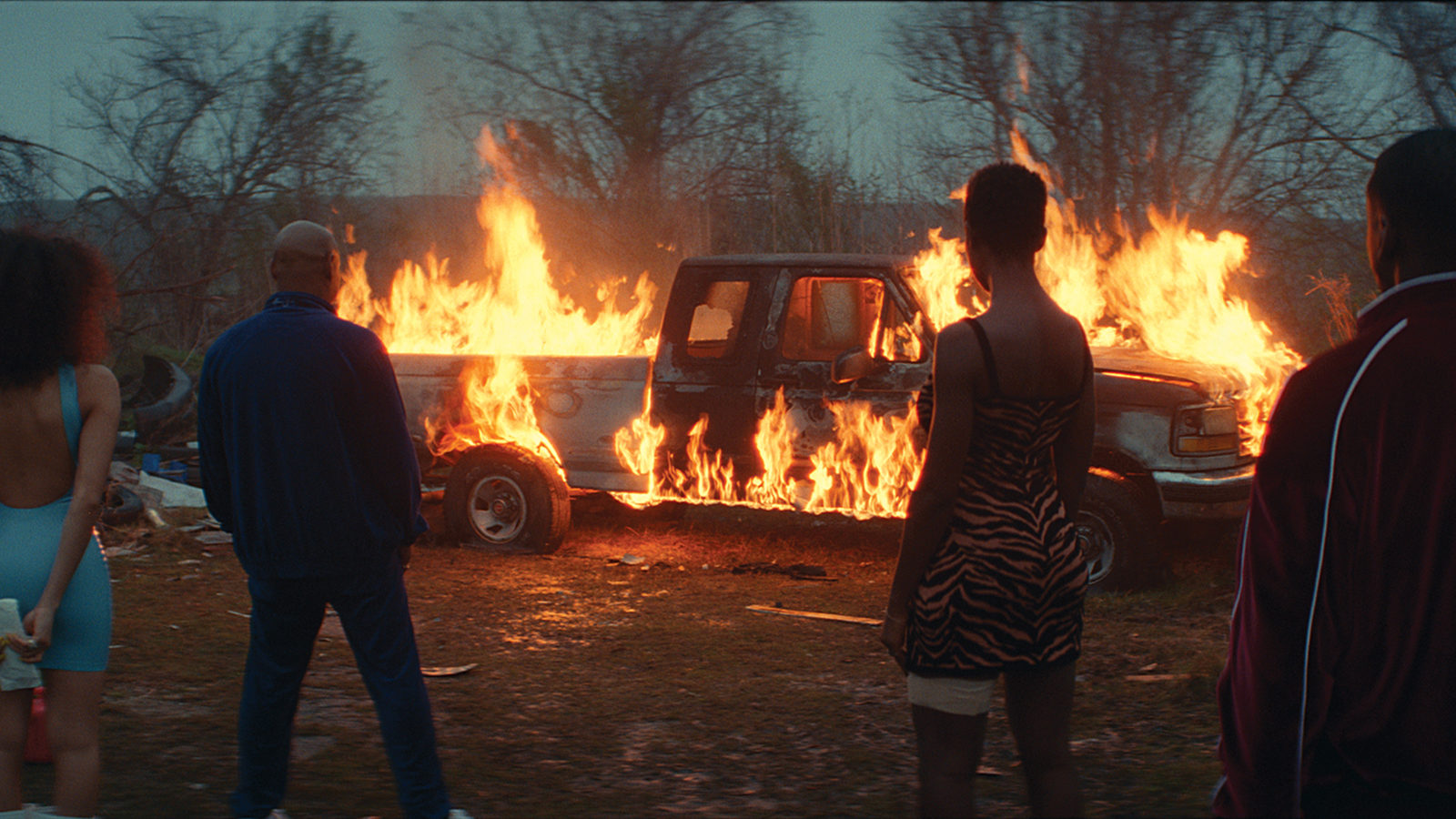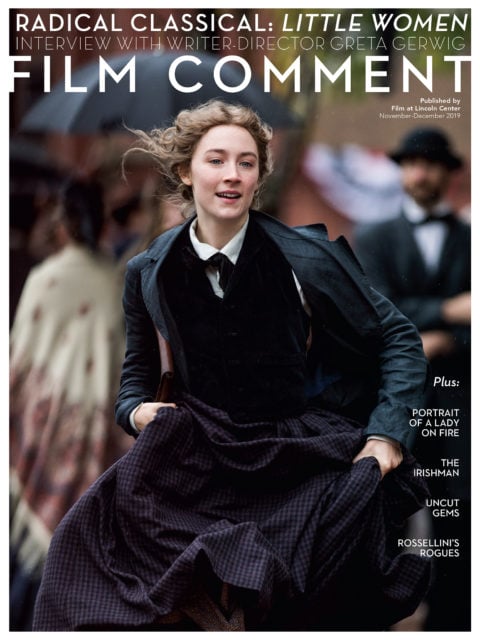
The Big Screen: Queen & Slim
In an era when "Black Lives Matter" narratives often focus on tragedy and violence, director Melina Matsoukas’s Queen & Slim, twists the formula, offering a surprisingly tender tale about two complicated lovers driven toward each other after a fateful police encounter. Written by Lena Waithe, this bold new drama refuses to either vilify or commend its lead characters, played by Jodie Turner-Smith and Daniel Kaluuya, who cling to each other after a frightening act of self-defense launches them into infamy.

And it all starts with Tinder. Queen, an astute criminal defense lawyer, swiped right on Slim, a laid-back retail employee, bringing them together at a diner for an awkward first date. There’s no reason to assume that these two will ever see each other again after this night. But as he’s driving her home, they’re pulled over by the police for a minor infraction. Slim is quick to do what the officer asks—pull out his license and registration, the usual—while Queen interrogates the cop at every turn. That quickly escalates to Slim being thrown to the ground by the officer, Queen getting shot in the leg, and then Slim fatally shooting the cop.
The sharp shift from a stiff romantic exchange to police violence threatens to turn this date-night prelude into a far-too-familiar story about an innocent black couple who inevitably fall victim to a prejudiced criminal justice system eager to throw them in jail. But Matsoukas and Waithe instead use this scene as a jumping-off point to explore what happens when Queen and Slim’s fundamental desire to defend their own lives is politicized. It becomes a viral video that’s subjected to much debate among advocates and opportunists alike.
Now on the run because Queen recognizes that their chances of overcoming the system are, well, slim, the pair become seen as heroes, villains, and victims, depending on whom they run into. All they really want is to be as invisible as possible. So, with the help of costume designer Shiona Turini’s vibrant ’60s- and ’70s-inspired style—exemplified by Queen’s form-fitting animal-print minidress and Slim’s velour tracksuit, courtesy of Queen’s pimp Uncle Earl (Bokeem Woodbine), who offers them refuge—Queen and Slim attempt to masquerade as the confident, badass celebrities their public expects them to be.
But this charade only exacerbates the vulnerabilities in their fraught predicament. Through Turner-Smith’s beautifully layered performance, Queen’s past traumas and yearning for love emerge. Her work forms a through line with Kaluuya’s equally moving portrayal of a young man racked with guilt, longing to go back to his life before the incident. The human connection that he finds with Queen is punctuated by a refreshingly romantic scene at a black pub they stumble upon in middle America.
Waithe’s characterizations highlight the unpredictability of the human condition and what that means for black people in today’s society. But she adds a little too much with a protest march that Matsoukas oddly juxtaposes with the couple’s lovemaking. The move seems to be a reminder that racial injustice continues even as Queen and Slim fall desperately in love, but it creates more intensity than is necessary in this delicate scene. In addition, some of the story’s peripheral characters, like Uncle Earl, aren’t as developed they should be for the significance they have in Queen’s life.
Still, Queen & Slim excels as a poetic romance between two virtual strangers who try to redesign their tragic fates together as everyone else abandons them—even those they trust. With cinematographer Tat Radcliffe’s warm color palette illuminating both the passion and hopelessness in the lovers’ eyes, Matsoukas and Waithe’s sometimes merciless film becomes a heartfelt story about love, pain, and fear in a harsh world.
Candice Frederick is a freelance film and TV critic living in New York City.







